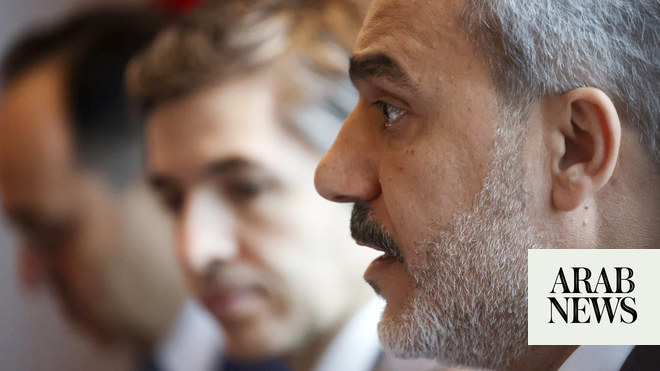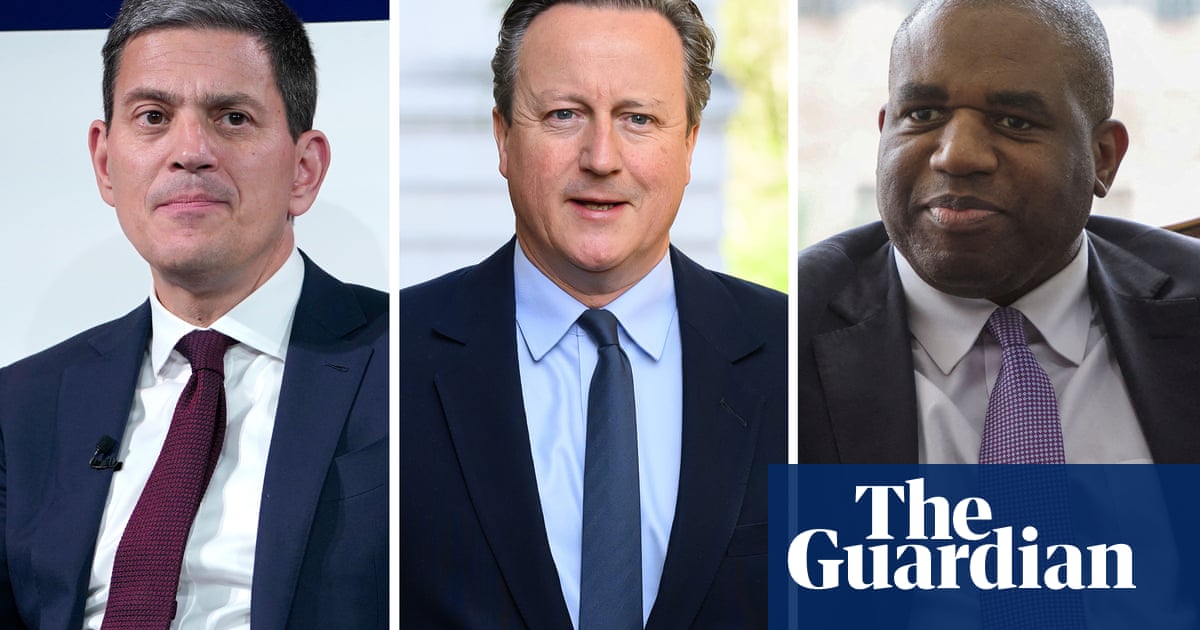
Analysts speculate on Hakan Fidan’s approach to foreign-policy challenges
ANKARA: Following President Recep Tayyip Erdogan’s reelection in late May, Turkiye’s foreign policy is in the spotlight once again with the appointment of Hakan Fidan as the country’s new foreign minister.
As Turkiye’s diplomatic leadership undergoes a transition, observers are waiting to see what direction the country will take under Fidan’s guidance.
It is generally believed that little will change, except that Turkiye may take a more assertive stance with an emphasis both on normalization efforts and on institutionalizing a security-guided foreign-policy approach, since Fidan’s doctoral studies focused on the role of intelligence in foreign policy.
The 55-year-old minister is a highly influential figure in Turkiye, having served as the country’s chief of intelligence from 2010 to 2023, orchestrating several reconciliation initiatives with Middle Eastern countries including Syria, Israel, and Egypt.
Renowned for his negotiation skills, Fidan played a direct role in high-level meetings, showcasing his ability to navigate complex geopolitical issues and grasp the intricacies of domestic dynamics in other countries.
Fidan met with the Syrian intelligence chief several times to lay the groundwork for political talks between Damascus and Ankara in 2022, suggesting that further steps may be taken to normalize relations with the Assad regime and to address security concerns related to the Syrian Kurdish YPG militia, which Turkiye equates to the outlawed Kurdistan Workers’ Party.
In addition to his experience in hard diplomacy, Fidan previously led the Turkish Cooperation and Coordination Agency, the country’s international aid agency, expanding Turkiye’s soft power through infrastructural and humanitarian assistance in the Balkans, Middle East, Africa, and Central Asia.
His previous role as Turkiye’s representative at the International Atomic Energy Agency also acquainted him with nuclear negotiations involving Iran.
Fidan’s appointment is widely interpreted as a signal of Ankara’s desire to pursue a more active role in regional and global matters.
As foreign minister, Fidan will face the challenge of negotiating with Western powers over several thorny issues, including Sweden’s potential membership of NATO and the delivery of F-16 fighter jets from the US.
On Thursday, Fidan held talks in Brussels with NATO’s top official Jens Stoltenberg. Ankara is insisting that Sweden must align with the recent legal amendments on anti-terror law that Turkiye pushed for, which would allow Swedish authorities to prosecute individuals who support terrorist groups.
“Sweden took some steps concerning legal changes and removing defense-industry restrictions against Turkiye. Those legal changes should now be put into practice,” Fidan said.
Whether Washington will approve the sale of F-16s in return for Turkiye agreeing to Sweden’s ascension is still unclear. Earlier this year, a bipartisan group of senators told US President Joe Biden that Congress should not consider the sale until Turkiye ratifies Sweden’s membership of NATO.
According to Ozgur Unluhisarcikli, Ankara office director of the German Marshall Fund of the US, Fidan is well respected in Washington and in European capitals. “This is an advantage at the outset of his tenure as foreign minister,” he told Arab News.
Recently, Fidan met with US Secretary of State Antony Blinken in London, where Blinken referred to him as a “colleague of many years.” The situation in Ukraine and NATO’s expansion topped the agenda during their meeting.
Experts do not anticipate any drastic changes in Turkiye’s foreign policy, expecting Fidan to prioritize continuity over major shifts.
“First and foremost, Fidan is Erdogan’s foreign minister, as (his predecessor, Mevlut) Cavusoglu was, and will conduct foreign policy based on the political directives he receives from the president. He was very active in foreign policy as the head of Turkish intelligence and played a role in most key policy areas,” Unluhisarcikli said.
However, given the ongoing depreciation of the Turkish lira and soaring inflation rates, Turkish foreign policy is likely to be closely tied to the country’s economic well-being, which relies heavily on foreign currency.
“I still expect changes in Turkish foreign policy in the upcoming period. Financing the current account deficit will remain a top priority, and this may lead Turkiye to pursue more positive relations with Western allies,” explained Unluhisarcikli.
He also said that, in the short term, assistance from Russia and the Gulf could help address the deficit, but accessing Western financial markets in the medium term would be crucial.
To bolster Turkiye’s strained economy, President Erdogan plans to visit Saudi Arabia, Qatar, and the UAE from July 17-19. He is expected to seek direct investments from Gulf countries — initially of approximately $10 billion, potentially rising to $30 billion — particularly in the energy, infrastructure, and defense sectors, according to Reuters.
Independent policy analyst Fuad Shahbazov suggests that, unlike Cavusoglu, Fidan may provide some flexibility.
“Cavusoglu was more concerned about diplomatic etiquette — trying to circumvent harsh rhetoric — but Fidan is a key ally of President Erdogan and a supporter of his conservative and pragmatic foreign policy, even at the cost of partnership with some Western countries,” Shahbazov told Arab News.
Shahbazov acknowledges that Fidan’s portfolio regarding Western and Central Asian networks may be somewhat limited, but believes this will not pose a problem.
“I don’t expect U-turns in diplomatic thaws with Egypt and Israel, as he is the mastermind of the process and will likely follow up on it promptly,” Shahbazov concluded.
The Turkish and Egyptian presidents are set to meet on July 27 in Turkiye.










